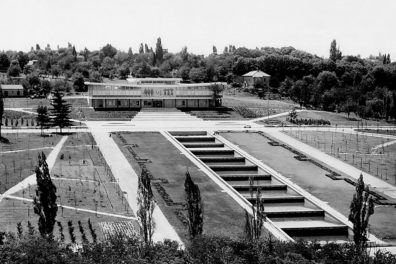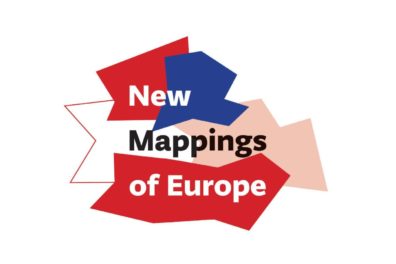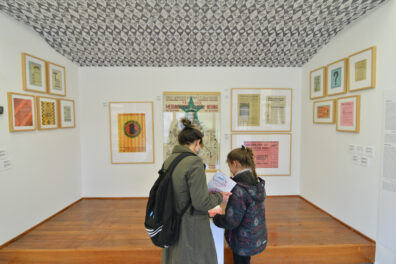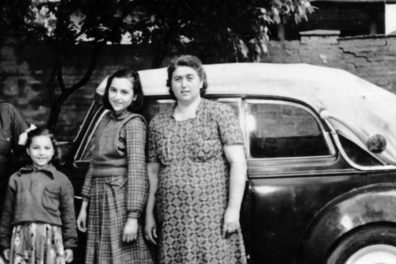BIKECULTURE: Student Protests of ’68
On the occasion of the 70th anniversary of the official start of the building of New Belgrade, within the program Bikeculture, the Museum of Yugoslavia organizes various bicycle tours across New Belgrade. The idea of the program is to draw attention to the heritage of this part of the city and to reexamine its symbolic, architectural and historical values.
The third round, Student Protests of ’68, will be held on Sunday, October 14, beginning at 12 o’clock in front of the Captain Miša’s Mansion. During the ride, visitors will have the opportunity to hear about where student demonstrations took place, how they started and how they ended, what was their political program and character, what was happening in other cities, and what Josip Broz Tito did at the time. Join us in a dramatic story about the release of utopian energy, the lightning fast breakthrough into the political sphere, the articulation of political demands, the confused power, the unfulfilled possibilities, and the contradictions of Yugoslav socialism.
At the end of the 1960s, Yugoslavia was in a period of great socio-political and economic uncertainty, which escalated in the form of student rebellion in Belgrade in early June 1968. Students began a strike revolted by a rough use of force by the police, seeking to resolve some of the current problems – an increase in social differences, the existence of privileges, problems of unemployment, the fight against bureaucracy in order to further develop self-management relations, broad democratization of society, as well as to solve many problems at the university. During the strike, they formulated clearer political demands in the form of an action-political program.
The visitors will be led by Momo Cvijović and Tatomir Toroman, curators of the Museum of Yugoslavia and authors of the exhibition The Frames of ’68, which was held in June at the Center for Cultural Decontamination (CZKD) on the occasion of the 50th anniversary of the student protests.
Route: Captain Miša’s Mansion – Municipality of New Belgrade – Student City
Tours are free and in Serbian.
Application is required. You can download the form here.
Contact:
Miloš Bogdanović, +381 64 17 94 160, [email protected]
Bikeculture Program for 2018:
September 6
Cycling tour (Un)realized and (Un)planned (New) Belgrade / Jelica Jovanović and Milan Popadić
September 13
Cycling tour On the Trail of the Non-Aligned in New Belgrade – Cycling through the Blocks / Jovana Nedeljković
September 14
Cycling tour Student Protests of ’68 / Momo Cvijović and Tatomir Toroman
Bikeculture represents a combined action of protecting heritage and the environment. It is a research and animation project of the Museum of Yugoslavia, which reexamines the heritage of New Belgrade, deals with the promotion of the museum fund, and with attracting and developing a new audience. New Belgrade is a paradigm of the Yugoslav state and society, so the project, although conceived outside the museum complex, is thematically and conceptually closely related both to the fund, as well as to the research focus, mission and goals of the Museum.
In the past years, Bikeculture has sparked a great deal of attention of the professional public, since it has introduced a new interpretation medium into the museum practice of Serbia, thus opening the way to a different, more informal approach to the presentation and interpretation of heritage. Bikeculture proposes new models of animation and community involvement in the process of understanding and protecting the heritage and enables dialogue and exchange of views on the Yugoslav legacy, which is often labeled as dissonant.
Author of the project: Marija Đorgović. Project collaborators: Sara Sopić, Dušan Jevtić, Aleksandra Momčilović Jovanović, Jovana Nedeljković, Ada Vlajić, Miloš Bogdanović, Nikola Korać.
- Day: 14.10-14.10.2018
- Time: 12:00
- Capacity: 30

The Origins: The Background for Understanding the Museum of Yugoslavia
Creation of a European type of museum was affected by a number of practices and concepts of collecting, storing and usage of items.

New Mappings of Europe

Museum Laboratory
Starting from the Museum collection as the main source for researching social phenomena and historical moments important for understanding the experience of life in Yugoslavia, the exhibition examines the Yugoslav heritage and the institution of the Museum

